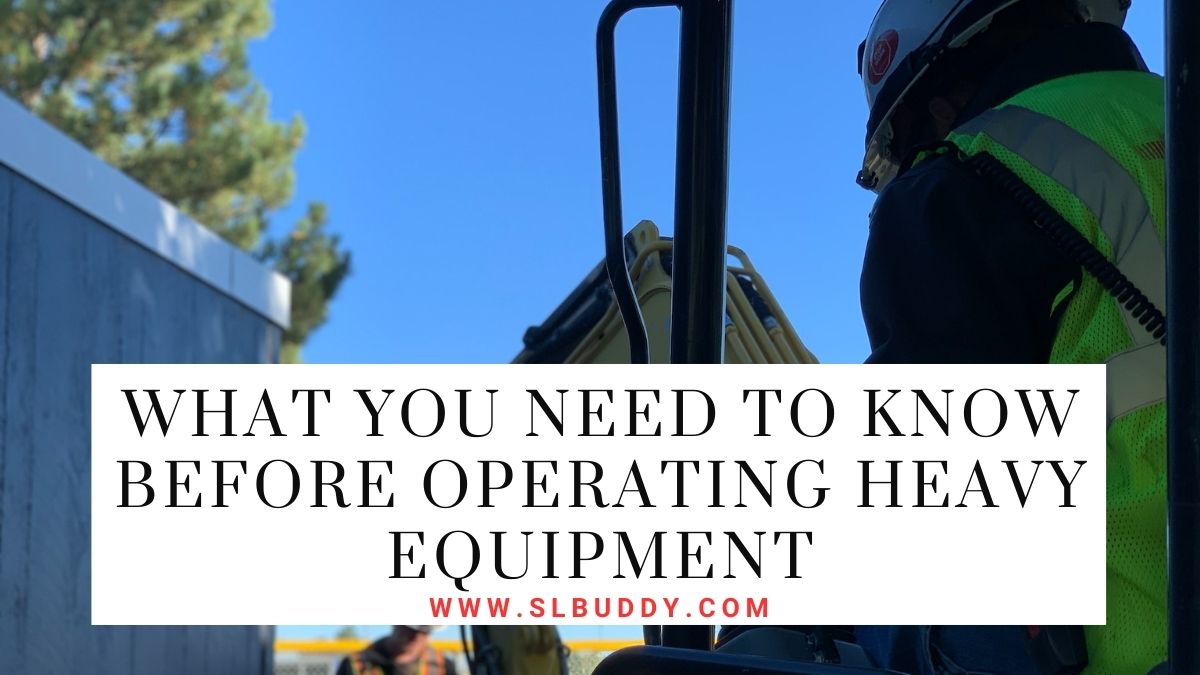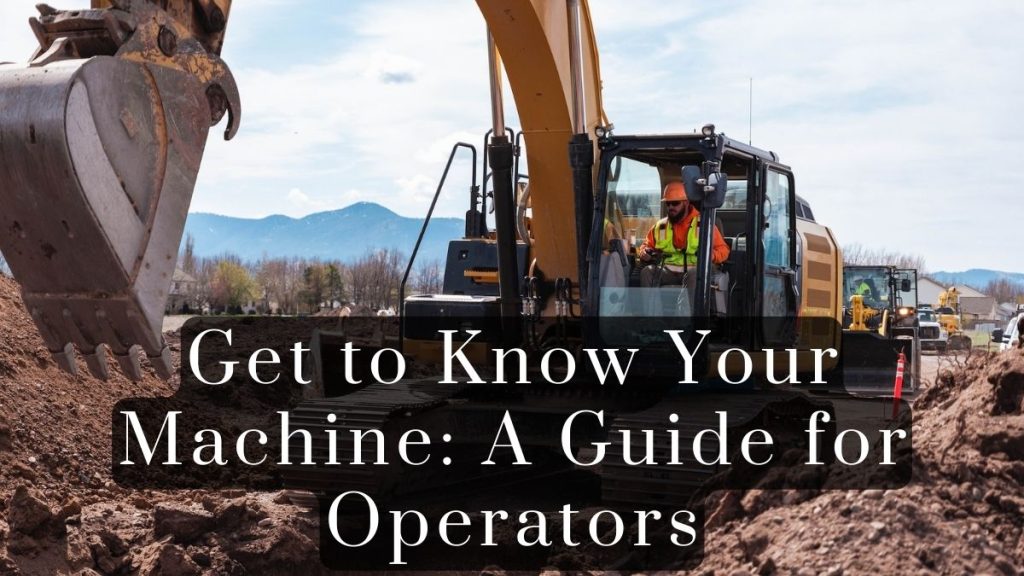
Are you on the verge of operating heavy equipment on your maiden voyage? You may be gearing up to spearhead an ambitious construction endeavor. In any case, you must understand what is necessary before starting.
Operating heavy machinery can be dangerous and costly if not done correctly.
Everything from routine maintenance of your machine to knowing the safety regulations in your area requires deep knowledge and experience an experience many will lack when they are just beginning their journey with these machines.
Several steps must be taken beforehand to ensure a safe and successful journey with running large pieces of equipment. Read on as we explore what those measures entail.
1. Take a Class to Operate Heavy Equipment Safely
One of the fundamental steps to operating heavy machinery safely is undergoing a comprehensive training program.
These classes are designed to equip participants with the requisite expertise to handle heavy machinery, from understanding the machine’s controls and functions while navigating through complex terrains to executing intricate tasks precisely.
Enrolling in a reliable heavy equipment training program ensures a foundational understanding of the machine’s capabilities and limitations, significantly reducing the risk of accidents while operating.
Moreover, safety training classes provide a legal and practical framework for operating heavy equipment.
They cover specific safety regulations, workplace hazards, emergency procedures, and preventive maintenance routines essential for a safe and productive environment. The training organization at Diggerman Training offers hands-on experiences, giving trainees the real-world practice needed to become proficient operators.
The knowledge and skills gained from these classes are invaluable, fostering confidence and competence in handling the challenges of operating heavy machinery.
2. Understand the Lingo
Just as with any specialized field, the world of heavy machinery operation is filled with its unique set of terminologies and jargon.
This ‘lingo’ is more than just a matter of jumbled acronyms and complex words. It’s the language that operators, technicians, and project managers use daily to communicate efficiently and effectively.
A solid grasp of this vocabulary allows for clear communication, crucial in a space where misunderstanding can lead to severe consequences.
The terminologies range from types of machines, parts, and operating procedures to safety protocols. For instance, words like ‘backhoe,’ ‘trencher,’ ‘boom lift,’ etc., are specific to the equipment.
At the same time, terms like ‘lockout/tagout procedures,’ ‘PPE’ (Personal Protective Equipment), and ‘OSHA regulations’ are related to safety protocols.
Familiarizing yourself with these terms will enhance your communication and understanding of the operational and safety aspects.
This is why the jargon is more than just words – it’s essential knowledge that carries practical application and significance.
3. Get to Know Your Machine
To become a skilled heavy equipment operator, it is crucial to know your machine well. Each machine has unique characteristics, controls, and capabilities; understanding them is essential.
Take the time to study the operator’s manual thoroughly, your go-to resource for detailed information about the machine’s parts, controls, maintenance procedures, and safety guidelines.
The manual provides valuable insights into optimal operating conditions, load capacities, and troubleshooting tips. Remember, the more familiar you are with your machine, the more efficient and safe your operation will be.

In addition to the manual, hands-on experience is crucial. Spend time in the driver’s seat, familiarizing yourself with the controls and how the machine responds.
Practice basic operations in a safe environment, gradually progressing to more complex tasks as you gain confidence.
Stay observant and alert for any unusual noises, vibrations, or performance changes that could indicate potential issues.
Like a seasoned pilot knows their aircraft, a skilled operator should know their machine thoroughly.
4. Keep Up with Maintenance
Regular maintenance is crucial for keeping your heavy machinery in top working condition. Neglecting maintenance can lead to costly breakdowns, downtime, and even accidents.
Ensure pre- and post-operation inspections are conducted as outlined in the operator’s manual. These inspections help identify any potential issues before they become bigger problems.
In addition to daily checks, following the manufacturer’s recommended maintenance schedule is essential.
This may include routine fluid changes, filter replacements, and other preventative measures to keep your machine running smoothly.
Keep accurate records of all maintenance and repairs conducted on the machine for future reference.
5. Know the Laws and Permits Required
Before starting any project, it’s critical to familiarize yourself with the laws and permits required for operating heavy equipment in your area.
Depending on the type of machine and the intended use, there may be specific regulations that you need to follow.
For instance, some areas require operators to obtain a special license or certification before operating certain types of heavy equipment.
Researching and understanding these requirements beforehand is essential to avoid any legal complications.
Also, permits may be required to operate on certain job sites or during specific times. For instance, noise restrictions may apply during certain hours if you’re working near a residential area.
When planning for a project, make sure to obtain all the necessary permits and adhere to any laws in place to avoid any disruptions or legal issues.
Also, be aware of any environmental regulations or restrictions that may apply when operating heavy machinery.
6. Practice Safe Operating Techniques
While operating heavy machinery, there are several best practices to follow that will help ensure your safety and the safety of others on the job site.
These include:
# Always wear appropriate Personal Protective Equipment (PPE), such as hard hats, gloves, and safety glasses.
# Maintain a safe distance from other equipment and workers on the job site.
# Follow all safety procedures outlined in the operator’s manual.
# Be aware of your surroundings and any potential hazards or obstacles.
# Communicate clearly with others on the job site using hand signals or radios.
# Never operate machinery while tired or under the influence of drugs or alcohol.
# Always follow proper procedures for loading, unloading, and transporting heavy equipment.
By following these best practices and paying attention to safety regulations, you can create a safe working environment for everyone involved in the project.
Don’t miss: 6 Educational Tips And Tricks Every Teacher Needs To Know
The bottom line
Becoming a skilled and safe heavy equipment operator requires time, dedication, and continuous learning.
Follow these essential steps: take a training course, understand the terminology, familiarize yourself with your machine, conduct regular maintenance, be aware of laws and permits, and practice safe operating techniques.
Prioritize safety and seek advice from experienced operators when faced with unfamiliar situations.
With the right knowledge, skills, and attitude, you can contribute to the success of any construction project as a proficient heavy equipment operator.














